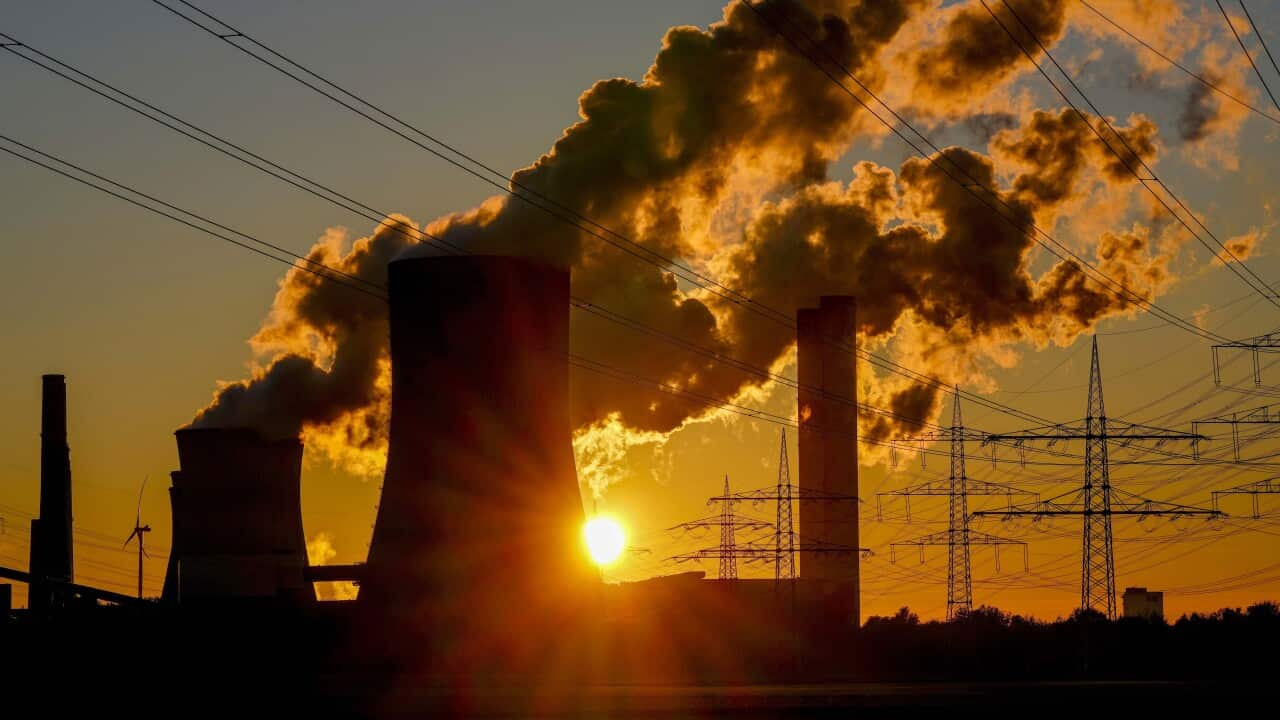Climate change is accelerating at a frightening pace as global efforts to slash emissions continue to fall short, the world’s foremost climate scientists warn in a major new report.
The (IPCC), a United Nations body, released its latest blockbuster report in the early hours of Tuesday morning.
To limit global temperature rises, the report recommended drastically , reportedly by as much as 65 to 95 per cent.
Global oil use should also be scaled back by between 15 to 50 per cent, more forests should be grown, and less meat should be consumed in order to contain global warming to 1.5C above pre-industrial temperatures.
Despite climate change warnings issued by IPCC since 1990, global emissions have continued to rise in the last decade, reaching their highest point in history.
Global emissions are now on track to blow past the 1.5C warming limit envisioned in the 2015 Paris Agreement.

Reducing emissions from fossil fuels was one of the key focuses of the latest IPCC report.
"It is a file of shame, cataloguing the empty pledges that put us firmly on track towards an unliveable world," Mr Guterres said of the new report.
"Climate activists are sometimes depicted as dangerous radicals. But the truly dangerous radicals are the countries that are increasing the production of fossil fuels. Investing in new fossil fuels infrastructure is moral and economic madness.
"Some government and business leaders are saying one thing — but doing another. Simply put, they are lying."
Addressing the world's population, he said: "Demand that renewable energy is introduced now - at speed and at scale."
Professor Tommy Wiedmann from UNSW Sydney was the lead author of a chapter examining the drivers of emissions across the globe.
"The report once again confirms the urgency required and the transformational character of mitigation needed at a global scale," Professor Wiedmann said.
"From 2010 onwards we had the highest increase in greenhouse gas emissions in human history."
He said renewable energy sources offered an increasingly useful alternative to fossil fuels, and that the worst impacts of climate change could still be prevented.
The IPCC report again stressed the need to .
Based on short-term goals agreed at the recent COP26 climate summit in Glasgow, global temperature increases are forecast to exceed 2.4C by 2100.
"We left COP26 in Glasgow with a naive optimism, based on new promises and commitments," Mr Guterres said.
"But current climate pledges would (still) mean a 14 per cent increase in emissions. And most major emitters are not taking the steps needed to fulfil even these inadequate promises."
At this point, only severe emissions cuts in this decade across all sectors, from agriculture and transport to energy and buildings, can turn things around, the report says.
Even then, governments would also need to bolster efforts to plant more trees and develop technologies that could remove some of the carbon dioxide already in the atmosphere after more than a century of industrial activity.

The recent flooding disaster on Australia's eastern seaboard was likely supercharged by a warming climate. Source: AAP
That same report observed that changes in the earth’s climate have been observed in every region across the world, and that human activities were "unequivocally" causing the planet to warm.
Professor Wiedmann said the latest report identified a number of promising avenues for emissions reduction.
"There's also a lot of good news — 36 countries have successfully cut greenhouse gas emissions over more than a decade," he said.
"And since 2010, the cost of renewable energy technology has fallen dramatically. It's not sufficient, but it's good."
The release of the IPCC report had to be delayed as countries haggled over the final text.
Conservationist and Climate Council member Greg Bourne, a former BP executive, said some climate change impacts were already unavoidable.
"When we look at the floods that are happening right now, and climate change, we can see that things are building up and building up," Mr Bourne told SBS News.
"If we can limit temperature rises to 1.5 degrees Celsius we have a fairly good idea of where the climate will stabilise.
"But we have already locked in some significant sea level rises that will occur."

Low-lying islands in the Torres Strait are particularly vulnerable to sea level rises. Source: Supplied
Torres Strait community leader Kabay Tamu said the window to act was shrinking, and fast.
"There are times when communities are totally flooded by the sea. It goes under their houses and everything. Especially around the monsoon season," Mr Tamu told SBS News.
"I guess the biggest impact would be, if it comes a time when we have to make a decision to relocate. We will be climate change refugees in our own country."
A wide range of politicians, business leaders and climate advocates continue to call on Australia to speed up its own emissions cuts.
Former Origin Energy executive Andrew Stock said Australia could not shrug off the latest IPCC report.
"Australia is one of the world's largest exporters of fossil fuels and we have the highest emissions per capita among developed nations," he said.
"By strengthening our climate commitments and actions this decade, we can have a huge impact on the future of our planet."
The federal government has committed to reaching net zero emissions by 2050.
The final report in the series produced by the IPCC is due to be released in October.
With additional reporting by AAP and agencies.









